“Nine new Boeing P-8 Poseidon Maritime Patrol Aircraft to increase further the protection of our nuclear deterrent and our new aircraft carriers. These aircraft will be based in Scotland and will also have an overland surveillance capability.”
In welcome news for many, the last Strategic Defence and Security review confirmed that the United Kingdom will once again operate an effective maritime patrol aircraft.
The P-8 Poseidon, developed by Boeing, is designed to conduct anti-submarine warfare (ASW), anti-surface warfare (ASUW), and shipping interdiction, along with an electronic signals intelligence (ELINT) role. This involves carrying torpedoes, anti-ship missiles and other weapons.
The history of the aircraft dates back to June 2004, when the US Navy announced the selection of the Boeing multimission maritime aircraft, 737 MMA, and awarded a contract to Boeing for the system development and demonstration phase of the programme for the US Navy’s next-generation maritime surveillance aircraft. The aircraft was given the designation P-8A in March 2005.
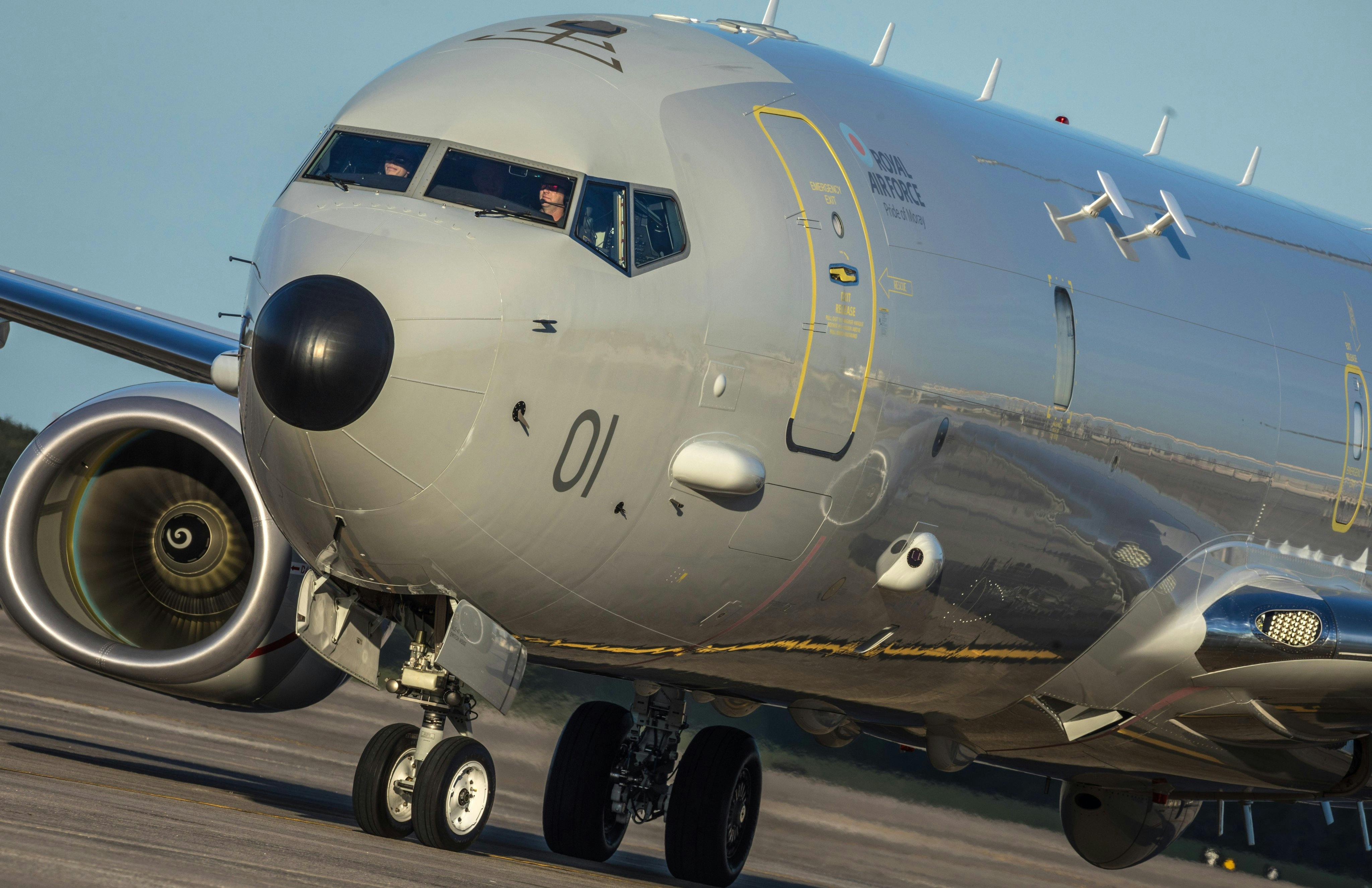
Poseidon contains up to 7 crew computer consoles in its cabin, has an electro-optical and infrared sensor turret, a maritime surveillance radar and signal intelligence system. Its radar is capable of detection, classification and identification of ships, small vessels and surfaced submarines.
It also has coastal surveillance capability meaning that the Poseidon can be used for search and rescue operations.
According to the US Navy, the aircraft in US service carries lightweight Raytheon Mk54 anti-submarine torpedoes. It may also carry other torpedoes, missiles, free-fall bombs, depth charges, mines, or sonbuoys in its weapon bay. Air-to-surface and air-to air missiles, such as Harpoon anti-ship missiles, SLAM or AGM-65 Maverick land attack missiles, and AIM-9 Sidewinders or AIM-120 AMRAAMs will be carried on the underwing hardpoints.
It is expected that up to 117 P-8A MMA aircraft are to be purchased by the US Navy to replace the fleet of 196 P-3C Orion maritime patrol aircraft which are approaching the end of their operational lives. The initial operational capability of P-8A was achieved in November 2013.
In August 2012, it was first reported that Boeing saw the United Kingdom as a market for the P-8, following the cancellation of Nimrod MRA4. After speculation every few months that the UK was going to purchase the aircraft, the UK announced its intention to order nine P-8 aircraft.

P-8 Poseidon Quick Facts, courtesy of Boeing
- For the P-8, Boeing uses a first-in-industry in-line production system that leverages the best of Boeing Commercial and Boeing Defense for development and production.
- The P-8 can fly up to 41,000 feet and travel up to 490 knots.
- P-8 offers higher reliability – the 737 has a 99.8 percent dispatch rate, with more than 4,000 aircraft flying, and 6,600+ orders.
- The P-8 is engineered for 25 years/25,000 hours in the harshest maritime flight regimes, including extended operations in icing environments.
- The P-8 can fly in all flight regimes, and can self-deploy up to 4,500 miles from base without refueling.
- Dual CFM-56B commercial engines each provide 27,000 pounds of thrust, greatly enhancing climb and flight characteristics over turboprop equipped aircraft.
- Each engine is equipped with a 180KVA engine driven generator. Combined with the 90KVA commercial APU, this provides 450KVA of power. P-8 possesses significant growth capacity for equipment with excess onboard power and cooling capacity.
- P-8 has twice the sonobuoy processing capability and can carry 30 percent more sonobuoys than any maritime patrol and reconnaissance aircraft currently flying.
- P-8 has the ability to control unmanned air vehicles (level 2 control-receive) to extend sensor reach.
- P-8 offers commonality with 737 fleet and other military platforms that use the 737 airframe.
The aircraft are to be based at RAF Lossiemouth in Scotland and be used to protect the UK’s nuclear deterrent and new aircraft carriers. The P-8s are also to perform search-and-rescue missions and conduct overland reconnaissance.
The first P-8 Poseidon aircraft arrives in the UK later this month.



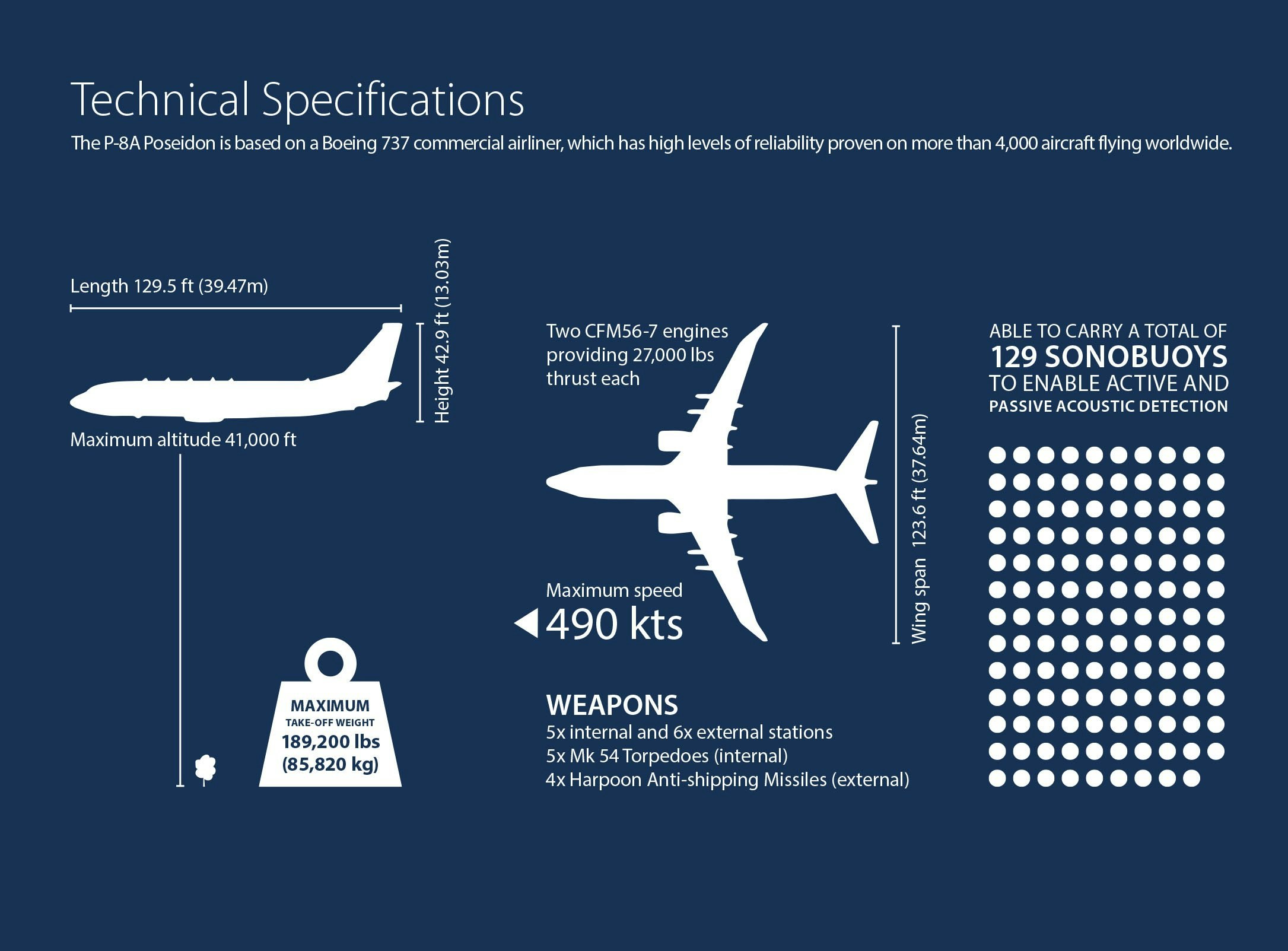
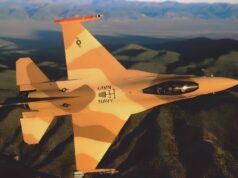
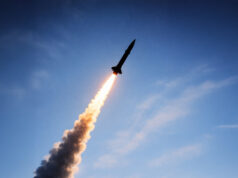

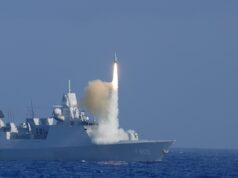

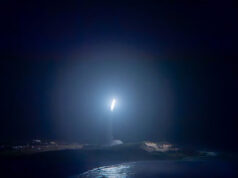
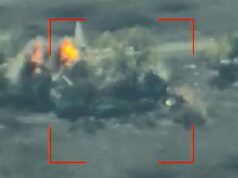
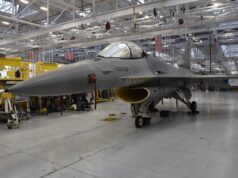
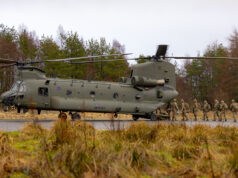
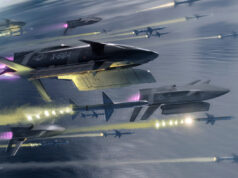

Good, I presume some of the lose of numbers will be made up for by more advanced capabilities, better reliability, additional range etc?
They are wired up for an underwing fit of Harpoon Block II …..
Here it is in action:
https://navaltoday.com/2018/07/23/australian-p-8a-poseidon-fires-first-harpoon-missile-during-sinking-exercise/
Harpoon is practically obsolete. All our main adversaries have pretty decent ASMs. We should have selected an interim ASM such as NSM to bridge the huge gap between sea eagle/harpoon expiry(Treasury wanted to leave us with nil ASM capability for a decade+!!!) & the entry of Perseus in c2020.
Such madhouse thinking is far from isolated. Who are our enemies when our own government ties our forces hands & knee-caps them?
Does anyone know wether the Mod plans on equipping them with Stingray torpedoes or buying Mk 54s?
It’s an off the shelf order of MK54s with the high altitude kit I believe.
Actually know just read that Mk 54s will be acquired.
https://ukdefencejournal.org.uk/britain-purchase-mk54-lightweight-torpedo-array-kits-destined-p-8-poseidon/
Buying mk54
It’s a shame we have no plans to pair these with something like triton, that would really mitigate the low numbers and work very well. A p-8 or two gives you little ability to monitor UK waters effectively, but add in a few Tritons to the mix with their endurance and your capably goes up a notch.
SSKs?
Working with or looking for?
UAVs might be a serious consideration for the future Jonathan.
“The UK Royal Navy’s (RN’s) First Sea Lord, Admiral Tony Radakin, has outlined plans to start using HMS Prince of Wales , the second Queen Elizabeth-class carrier, as an experimentation platform for large unmanned aerial vehicle (UAV) operations in 2021.
Speaking at the Defence IQ Surface Warships conference in London on 30 January, Adm Radakin acknowledged that the scope of the plan was currently “very loose”, but that his challenge to the shipbuilding industry was to cultivate a future-oriented mindset that sought to ensure that both of the RN’s new aircraft carriers remained at the leading edge of technological advances going forward.”
https://www.janes.com/article/94037/first-sea-lord-outlines-ambitions-for-large-uav-experimentation-off-prince-of-wales
So if he’s thinking of operating a Protector or Triton type aircraft from the carrier, how will it be launched and recovered? It’s a pity the report by Janes only states the key line of the speech rather than the details.
Perhaps they are having a rethink lol!
https://www.janes.com/article/93984/newport-news-shipbuilding-workers-help-accelerate-ford-work-while-at-sea
Perhaps finally they are getting to a position where EMALS is a bit more reliable?
Janes have also an interesting post on Japan. Japan are buying JASSM-ER and LRASM due to the ‘severe’ security environment. Which says a lot about how they feel with both the expansion of China’s military capability, but also the on-going development of North Korea’s missile program. I guess the joint Chinese-Russian exercise didn’t help either.
I discussed the possibility of fitting EMALS onto one of the carriers by 2025 over a year ago as progress seemed to be being made, it caused a storm on here believe me!
No doubt you’ve seen my posts on joint Chinese-Russian exercises and the use of longer-range standoff munitions in previous threads.
If we hope to keep both carriers operational, making them more flexible in terms of aircraft types than can be flown from them, including large UAVs would definitely help matters.
The first flight of Magma viewed from the onboard camera and the three testing phases of Taranis, we can’t be that far away from fielding our first drones of the future surely?
https://www.theengineer.co.uk/blown-air-flap-free-magma-bae/
Fitting EMALS to the current carriers is not really viable. It would require a huge amount of work and reconfiguration! It would probably be cheaper to build a brand new small carrier!
Most likely use a mini CAT, a bolt-on bolt-off type of catabot.
Is UK Protector based on the Avenger development of Reaper. If so it has a turbofan engine rather than a turboprop. It might be possible to launch it from QE.
Protector will be a certifiable Predator B, so it is retaining the turboprop.
https://www.dsca.mil/major-arms-sales/united-kingdom-certifiable-predator-b-remotely-piloted-aircraft
Jonathon wrote:
It’s a shame we have no plans to pair these with something like triton, that would really mitigate the low numbers and work very well.
Well now that Germany has cancelled its order for (Euro Hawk and Triton) a second time, maybe now would be a good time to bang a good deal.
Just looked at the unit costs of Triton vs P8. $182m inc(R&D) for Triton and a higher cost quoted for a P8 of $275m. If the P8 can really work with a UAV / Triton then a small number of these could be a significant force multiplier…
I also meant to say that running costs for Triton would likely be lower than a P8, even if it is just the fuel bill! So a minimum buy of half a dozen Tritons would represent a cost effective force multiplier.
It would however entail introducing another large UAV platform. Sadly for smaller operators like the UK the naval version of the Reaper did not win the USN competition, so there are 2 UAV’s to buy…
Of course, if the proposed large UAV trial from HMS Prince of Wales proposed by the First Sea Lord prove successful the RN might be in a position to deploy an ASW capable UAV from the QEC class. When operating in the North Atlantic the P8 with a RN UAV combination could be a significant enhancement of our ASW capability.
Or perhaps even the Textron Scorpian – https://scorpion.txtav.com/en. Low cost, low operating costs, long on-station duration with a large selection of sensor and weapon fits. These could also be used in the close air support role in non-contested environments too rather than wasting flight hours on Typhoon and F-35.
That would be nice, but unfortunately our budget won’t be able to stretch to Tritons for some time, methinks…
The Protectors we’re getting may be a good option though; they’re arriving good for operations in UK/European airspace with an endurance of over 40 hours. I know they’re turboprop, but still not bad. Apparently the manufacturer was developing sonobuoys for them back in 2016, and the MQ-9 is used by the US coast guard for maritime duties. I believe they’ve got a maritime search radar for it too. The gumpf says that the Protector can carry up to 18 Brimstone, so I assume it could carry at least a couple of ASW torpedoes, sonobuoys and drop tanks in some combination or other. It shouldn’t be too much trouble to get these capabilities for our Protector fleet for far less than more P-8s or new Tritons, and they could certainly relieve our P-8s for the more basic missions and let them do the wider ranging stuff out to the GIUK gap and suchlike.
They carry about 20 tons of kit; that’s a lot of ASW. But they burn 20 tons of fuel for only 4 hours on station. If we find a sub to kill they’re great to get out there quick and help, but for 24/7/365 hunting these 9 aircraft just won’t be able to do it. They are also costing us £3bn which would be enough for 4 more Astutes which could do a 24/7/365 job.
Nimrod was the answer to the range and endurance issue of course but thats history. Poseidon is now the best option.
4 Astutes for £3bn, really?
1.8 Astutues. £1.65b each at last count.
Still, regardless, 12 Astutes should be minimum. Capital cost over 25 year cycle less than £1b pa from a £35b budget.
That could possibly be for just the ship build bit?
3bn would not buy 4 Astute class subs, 2 at the very most, and submarines do not have the inherent speed and flexibility of air power.
The answer would be air to air refuelling. Oh wait!
[…] post A look at the P-8 Poseidon, Britain’s new submarine hunter appeared first on UK Defence […]
Compared to the Nimrod they are slower and have a shorter range. They also have a smaller weapon load and it doesn’t support probe and drogue aerial refuelling.
There was once a plan to use the frame of the 146 regional jet by BAE but it didn’t get any support from the MOD. I still find it hard to believe that we could not build a Nimrod replacement that not only met the same capability but would have been cheaper. The MR4 avionics suite was world class at the time, but just needed a better frame to put it in.
We were lucky that the aircraft wasn’t needed in the interim.
Lucky, yes agreed. Tho we have also had the support of allies, in a similar way to the support we give to other military who lack certain capacity. For example…
https://ukdefencejournal.org.uk/raf-transport-french-equipment-mali-counter-insurgency-operations/
Will be great to see up and running tho, and should never have lacked the capacity in the first place, for an island nation.
This is often missed. There are complaints about our defence spending, but we are not on our own and we can still help the French out when their oen capabilities are inadequate.
British Government should have opted for Japanese Kawasaki P1 with RR RB715 engines and the kit from the MR4 installed. Overall I think the Kawasaki is a better maritime aircraft than the Boeing P8
In the short term your Anglo P1 would make an excellent aircraft, unfortunately the cost would be enormous and 15 years from now we would have to pay another fortune out on mid life upgrades to counter obsolescence , just as we would have had to do with the MR4, with only the UK tax payer to foot the bill
Refuelling??
Are we really going to only refuel these with ou4 partners who had the foresight to fit their air to air refuelling with drogues and booms
AirTanket PFI – what a governmental cock-up!!!!!!!!
It could be worse. The new US Air Force KC 46 tanker of which 30 have been delivered by Boeing already are not fit for purpose. It may need over 4 years to get the boom system working safely. until then they have 30+ tankers you cannot use in a combat theatre.
https://www.thedrive.com/the-war-zone/31945/air-force-isnt-happy-with-boeings-plans-to-fix-the-kc-46-tankers-troubled-vision-system
I never realised just how many and what variety of weapons these can carry. With ground surveillance these are lethal anywhere on earth from stand off ranges and have the power for laser defences.
Pros and cons to this aircraft Vs Nimrod and Kawasaki P1.
I would feel better if the RAF was getting more than 9 aircraft. Say another 5-6 should provide enough capacity to effectively patrol UK EEZ
I think a maritime patrol UAV is needed for longer loiter and endurance
Our P8’s will work and in hand with our new protector uav’s from 2023.
As long as the RAF don’t decide they need them elsewhere.
There seems to be some disagreement on on-line forums as to whether the P8 will be fitted with MAD. It certainly will not have the tail boom usually associated with such a system and the higher operating altitude the P8 is designed for would seem to preclude its use. I have also seen suggestion of the development of a small uas that could be deployed from a P8 that would add a MAD capability.
The simple answer to a MAD boom is no, unless uncle Sam fits them to his.
Ours will remain stock US Navy spec. An imminently sensible and cost-effective solution.
Only India bought MAD equipped P8s
Think defence did a really good write up on all the post Nimrod options, it’s a good read.
Why did 2010 happen with all the disaster that came with it? I feel cuts back then were being made to show something was being done, like the Sheffield Forgemasters loan and others. Little do politicians know that most of this just depresses people. Seeing Nimrods being torn apart helps no one, and I am sure this was done outside for others to see, for a reason.
Lib-Con government wanted to save money so they do what all governments do. Take a hatchet to the MoD.
I voted for that government to end 13 years of our forces being run into the ground by Labour.
It was a real slap in the face.
The Labour government kept the gdp % budget level or a little better throughout their term. Look at the data since 1950 and you will see who cut the most. For an intelligent man with analysis on defence topics that is second to none your remark above is dishonest.
Hi Nicholas.
Despite that comment being a year ago! It was not meant to be dishonest at all.
1997 – SDSR. The UK has 23 Fast Jet Squadrons, 35 Escorts, and ( I think ) 12 SSN.
2010 – End of New Labour. The UK now has 12 Fast Jet Squadrons, 23 Escorts, and I forget how many SSN.
Those are facts, not being dishonest. Add to those key stats the endless cuts throughout the entire period, especially in the New Chapter to the SDSR in 2004, the CHF SABR fiasco under G Brown, and god knows what else, and many indeed were keen to get rid of New Labour. The Army survived due to the ongoing ops in the Middle East.
That the Tories came in and made an even greater hatchet job, especially on the army, and it was indeed a slap in the face.
One article pre SDSR 2010 was warning of the entire RAF GR4 force of 7 squadrons getting the chop. It was a depressing time.
My post was not taking either side, all parties fail on defence, as I implied with my comment “they do what all governments do.”
This will no doubt be played out again in the upcoming SDSR. People will howl, including me, then maybe quietly contemplate the alternatives with Jeremy Corbyn as PM. Cheers.
I apologise for the dishonest remark. Perhaps the truth is that all governments over the last 4 decades have stuffed the armed forces. Perhaps we can agree that this isn’t really a party political issue and more an issue of priorities and the fact that most people don’t care. I do agree though that Corbyn would not have been good for defence even though I voted for him.
“Perhaps the truth is that all governments over the last 4 decades have stuffed the armed forces.”
Agreed Nicholas. You hit the nail on the head. Most people don’t care, equals no emphasis by HMG.
No need to apologise, just a misunderstanding.
It wasn’t dishonest or inaccurate, and nor was the person you’re debating with. Problem is, everyone in this thread has missed the elephant in the room and that is big ticket new projects such as the aircraft carriers that have sucked money from the bread and butter of the defence budget.
Thanks for that breakdown Daniele- it’s incredible how operational cuts can be made while the money stays broadly the same..! Does anyone have a handle on how that happens? Inflation is normally accounted for in GDP as I understand it, so our money should be going the same distance, as it were.
There was something like a 25bn black hole in the defence budget back in 2010, plus the MOD had to make is contribution towards the 150 billion budget deficit, or whatever it was called. The Nimrod MR4 project was around 800 million over budget. Somthing had to give.
There where airworthiness issues with the Nimrod, it was years behind schedule and all aircraft are scrapped in the open.
If the UK does not want to pay to integrate Storm Shadow on the P-8, I note that SLAM-ER is back in production for a big Saudi order (650 missiles). Might not be a bad idea for the MoD to tack on a few for the RAF while the production line is open.
So we are spending billions on an ASW aircraft that can only carry a handful of ASW weapons and those weapons, the Mk54, have a very dubious capability against subs.
You couldn’t dream it up.
Forget integrating Storm Shadow or Harpoon.. just get Mk 75 Sting Ray integrated ASAP.
There is not a lot of point in having an aircraft designed to kill subs that is armed with a weapon that struggles to do the job.
Mk 54 is one of if not the most used anti sub torpedo in the world, but hey, you say it’s no good.
I have posted on this subject a number of times.
I have maintained UK Lightweight Torpedoes from Mk 44, Mk 46 up to Mk 75. I have also worked with other navies who use Mk 50, Mk 54 and other European built torpedoes. So I have more than a bit of knowledge regarding Asw weapons. Because something is used by lots of people does not make it good and a Mk54 isn’t good when compared to even a basic Mk 75 let alone the latest Modded version.
The Mk 54 is a Mk 50 front end which is a fairly modern electronics fit although it’s performance in trials has been questioned . And that’s where the plus points end.
It has a blast warhead, not a shaped charge, so it’s going to have little effect against a modern deep diving sub.
The Propulsion part is a Mk46 torpedo… That’s a 1960s tech OTTO Fuel engine running counter rotating props. It will have a top speed that will mean that unless you drop it right on top of a sub, it will be lucky to catch it.
The Mk 46 was the reason the UK built Sting Ray. Modern sonar and electronics, Very high speed pump jet Propulsion, increased manoeuvrability, shaped charge warhead, longer endurance and deeper diving.
One of the operators I worked with had a European torpedo for its STWS tubes and the MK50 for its helo. Why? Because it was a US built helo and it was easier to leave it it Mk54 capable that spend years trying to get another torpedo qualified for use on the aircraft.
Good enough for me. MK54 needs replacing with UK Stingray ASAP.
I believe the UK has always been a leader in Torpedo tech with the likes of Spearfish, why have a US one if ours are better.
What would conversion costs be for the P8?
I didnt post the first comment….its over a year old…Mods????
You’ve just noticed!
Old articles are quite common on UKDJ. Nothing wrong with it, we just add to the debate!
Multiple thoughts.
Another 2 or 3 P-8 for the RAF would be good. As would arming them with Harpoon block II+ & SLAM-ER.
Boeing has its issues. Since 2013, it fired 1300+ engineers & spent $43 billion on share buy backs. That boosted its share price, but has left it short of cash/engineers to sort 737MAX issues, plus develop (or not) the NMA & force it to abandon that DARPA reusable mini sat launcher (Phantom Express?).
More needed , Advanced capabilty cant put an aircraft in two places at once
The old adage “two into one wont go”
Not enough ariframes
hi’ what happens to the buoy’s do they get picked up or do they just sink to the bottom
Pretty sure they are expended,I wonder if they are built to degrade after a period of time.
Or stolen by the Russians.
They sink.
On exercise you would expect the Navy to pick the sonobuoys up. If they are not pick up by us or the Russians then a soluble plug lets them sink.
“The Poseidon can also be used for†do we have and other SAR assets, if not where a joke! Apart from chopper
USC’s running 24 hrs a day from raf kinloss autonomously, imagine that base full of tritons and the like.
First RAF P8 is due to arrive at Kinloss this Tuesday between 13:00 & 15:00.
I think we will have the personnel to man them.
My concern is the delivery schedule, I believe it is rather slow unless things have changed.
I just hope are P8s are equipped with all the weapon systems needed to use all that capability, rather than the Treasury deciding we can do without essential kit as they’ve done or tried in many recent cases.
Hi – who is the manufacturer of sonobouys for Poseidon P8?